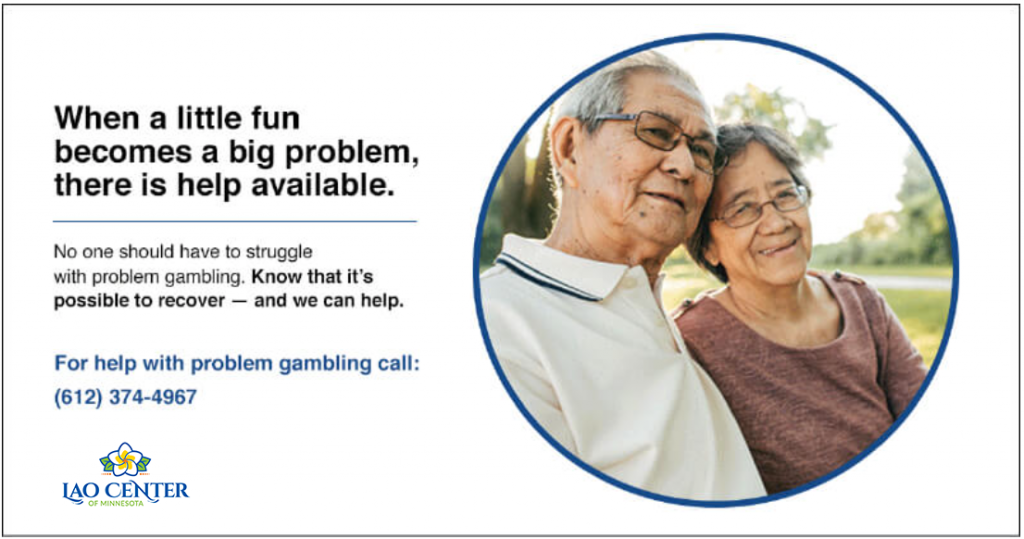


The Minnesota Department of Human Services partnered with the Lao Assistance Center of Minnesota to explore Problem Gambling Awareness within Twin Cities Southeast Asian communities.
It marked the beginning of a multi-year listening process, as community volunteers shared vital insights and perspectives. With participation from a wide range of ages and backgrounds, a multifaceted picture emerged, revealing divergent approaches to addiction issues and family dynamics. It became clear that “traditional” 12-step treatment methodologies had little currency since reaching beyond one’s family for help or support was generally regarded as a socially inappropriate option. This required development of culturally relevant messaging, with an emphasis on prevention and personal responsibility.


This process was intensely collaborative, with multiple concepts developed. The volunteer committee favored a strategy incorporating a range of messages for use in print posters and social media. Themes included finding balance in life, harmony in the home, and the benefits of not risking one’s financial income.
Creative work was produced in Lao, with English translations, featuring diversity in ages, gender, contemporary and traditional clothing styles, and incorporating such phrases as: “Choose your path of life properly.” and “I stopped gambling. My life is better, and my future is brighter.” All materials feature contact information, including the Lao Assistance Center’s phone number and website – both trusted community resources.
One component of the creative work was a narrative video starring real people from the Lao community. In-depth storytelling is valued in the culture which resulted in a video that is over four minutes in length. It depicts a family’s dynamics and struggles with a member who is consumed by a gambling problem. It concludes with phone numbers to the Lao Assistance Center and the Minnesota Department of Human Services problem gambling helpline.
This diverse group of communities shares a common preference: discussing personal issues outside of one’s family or social circles is generally to be avoided. This can make dealing with something as personally and financially devastating as problem gambling especially difficult.
To better serve these communities and offer hope to affected individuals and their families, DHS worked with Progressive Individual Resources, a social service agency dedicated to offering culturally sensitive mental health support, especially in Sub-Saharan African communities. PIR is sharing their message across social media through a series of traditional proverbs, which can make potentially complex issues more accessible to the average person. Such familiar phrases not only contain considerable wisdom, they offer perspective, and can guide individuals toward new ways of understanding.


Working with college-bound student athletes in the Twin Cities region, the Neighborhood Youth Academy helps aspiring players develop the values and mental discipline to pursue successful college careers. As a part of this training, DHS collaborated with NYA and athletes to develop a video explaining the dangers of sports gambling, since even casual betting among friends can put precious scholarships at risk. A lot was learned in the process, including the prevalence of betting within popular sports video games: placing money on game outcomes, contents of virtual “loot lockers” and much more. Student athletes not only informed the video’s content, they also used their energy in front of the camera, working with our producer to create a fast-paced, informative video that coaches can share with their teams.
